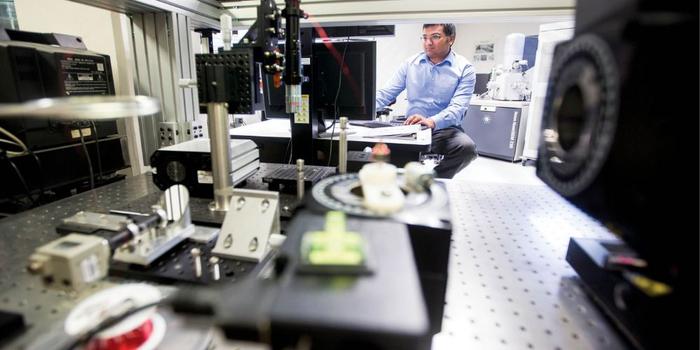Six faculty members from The University of Texas at Arlington received more than $3.23 million in awards as part of the National Science Foundation’s (NSF) Faculty Early Career Development Program. Called CAREER, these awards are considered the NSF’s most prestigious for early-career faculty and are given to those who have the potential to serve as academic role models in research and education.

Credit: Photo credit UT Arlington
Six faculty members from The University of Texas at Arlington received more than $3.23 million in awards as part of the National Science Foundation’s (NSF) Faculty Early Career Development Program. Called CAREER, these awards are considered the NSF’s most prestigious for early-career faculty and are given to those who have the potential to serve as academic role models in research and education.
Between 2017 and 2022, UTA received nine CAREER awards; in 2023, it received six. Vice President of research and innovation Kate C. Miller called this “a true testament to the world-class research teams we’re assembling here in Arlington.”
“CAREER award winners are often considered the best and brightest in academic research,” Miller said. “It is a tribute to the outstanding caliber of our faculty and their research that the NSF funded so many UTA research projects in 2023.”
The projects and researchers supported by these grants are:
- Engin Arslan, assistant professor of computer science and engineering, for his research project “Efficient and Reliable Data Transfer Services for Next Generation Research Networks,” which focuses on improving the performance and robustness of large data transfers between research institutions.
- Remi Chou, assistant professor of computer science and engineering, for his research project “Towards Privacy-Preserving Wireless Communication: Fundamental Limits and Coding Schemes,” which aims to improve privacy-preserving protocols that will thwart cyberattacks and data breaches.
- Shirin Nilizadeh, assistant professor of computer science and engineering, for her research project “Advancing Adversarial Robustness of Natural Language Generation Systems.” She is exploring the robustness of natural language generation systems against evolving security and privacy threats. Nilizadeh’s research aims to improve the security, privacy and safety of these increasingly popular systems.
- Narges “Nora” Shayesteh Moghaddam, assistant professor of mechanical and aerospace engineering, for her project “In-situ Hybrid Layerwise Rolling and Sealing in Laser Powder-Bed Fusion Manufacturing of Tungsten: Fundamental Processing Mechanisms and Transition Temperature Controls.” She is studying tungsten refractory materials, which are known for their resistance to extreme conditions due to their high melting point and density, making them ideal for harsh environments like space exploration or defense applications. Her research will investigate hybrid manufacturing processes aimed at enhancing tungsten’s durability, potentially leading to significant breakthroughs in materials engineering for industries that require materials capable of withstanding extreme conditions.
- Allison Sullivan, assistant professor of computer science and engineering, for her research project “Live Programming for Finite Model Finders,” which aims to help developers be more productive by allowing them to see how software is performing and identify where anomalies occur, so they don’t have to search through code to find a problem.
- Shuo Linda Wang, assistant professor of mechanical and aerospace engineering, for her research project “A Multilayer Dynamic Network Control for Agile, Optimized and Sustainable Supply Chains.” Her project hopes to optimize supply chain management to allow for flexibility from forces outside the supply chain, such as policy changes that can cause major disruptions.
To be eligible to receive CAREER program grants, early-career faculty (those at the assistant professor or equivalent rank) must be deemed by their departments as having the potential to lead advances in the mission of their department or organization. Activities pursued by CAREER grantees should build a firm foundation for a lifetime of leadership integrating education and research.
“I’m extremely proud of these emerging researchers and the potential societal impact of their research,” Miller said. “It says a great deal about the growth in quality and quantity of research conducted at UTA that the National Science Foundation chose to fund so many of our talented professors.”



